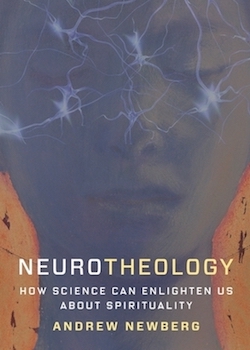What can account for the amazing staying power of religion? Why, exactly, won’t God go away?
Most secular thinkers believe that religion is an entirely psychological invention—born out of confusion and fear—to help us cope with the struggles of living and comfort us in the face of the terrible certainty that we will die. But Andrew and Eugene d’Aquili offer a new explanation, at once profoundly simple and scientifically precise: the religious impulse is rooted in the biology of the human brain.
Andrew and Eugene base this revolutionary conclusion on a long-term investigation of brain function and behavior as well as studies they conducted using high-tech imaging techniques to peer into the brains of meditating Buddhists and Franciscan nuns at prayer. What they discovered was that intensely focused spiritual contemplation triggers an alteration in the activity of the brain that leads one to perceive transcendent religious experiences as solid, tangible reality. In other words, the sensation that Buddhists call “oneness with the universe” and the Franciscans attribute to the palpable presence of God is not a delusion, or subjective psychology, or simple wishful thinking. The inescapable conclusion is that God seems to be hard-wired into the human brain.
In Why God Won’t Go Away, Andrew and Eugene document their pioneering explorations in the field of neurotheology, an emerging discipline dedicated to understanding the complex relationship between spirituality and the brain. Sadly, Eugene died in August of 1998, leaving Andrew to continue their groundbreaking research and to contemplate such essential questions as whether humans are biologically compelled to make myths, what is the evolutionary connection between religious ecstasy and sexual orgasm, can research on near-death experiences tell us anything about the realness of spiritual phenomena, how does ritual create its own neurological environment, and have we found a common biological origin of all religions?
And finally, there is the compelling and overarching question: Is religion merely a product of biology—a neurological illusion—or does the very fact that our brains function in such a curious way argue that God is not only real, but reachable? In simpler terms: Is God created by, or the Creator of, the brain?
These questions and more resonate at the heart of Why God Won’t Go Away. Challenging in its presentation of cutting-edge brain science, yet accessible and engaging, Why God Won’t Go Away brims with illuminating insights into the nature of consciousness, the mystifying mechanics of perception, the neurological basis of human emotions, and the miraculous manner in which the brain tells us what is real.
Resting on a firm foundation of solid empirical data, this nevertheless is a book about mystery. As Andrew followed the trail of empirical data, laboring to understand the deepest implications of his research, he found himself led to a place where intellectual analysis wasn’t sufficient, where objective reality didn’t seem so solid, and where the borderline between the world of science and the realm of the spirit is not such a clear one after all.
Why God Won’t Go Away bridges faith and reason, mysticism and empirical data. As Andrew takes us on an exploration of the awe-inspiring organ inside our skulls, we find echoes of the infinite buried within its convoluted folds, and we ponder a compelling and surprising explanation for the transcendent tenacity of God.









